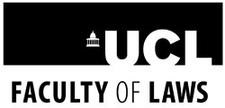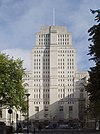The Right Honourable is an honorific style traditionally applied to certain persons and collective bodies in the United Kingdom, the former British Empire and the Commonwealth of Nations. The term is predominantly used today as a style associated with the holding of certain senior public offices in the United Kingdom, Canada, Kenya, The Bahamas and New Zealand.
The Order of precedence in New Zealand is a guide to the relative seniority of constitutional office holders and certain others, to be followed, as appropriate at State and official functions. The previous order of precedence is revoked and Her Majesty The Queen approved the following Order of Precedence in New Zealand effective 20 September 2018:
- The Queen of New Zealand.
- The Governor-General or, while acting in the place of the Governor-General, the officer administering the Government
- The Prime Minister.
- The Speaker of the House of Representatives
- The Chief Justice
- The Dean of the Diplomatic Corps
- The Deputy Prime Minister
- Ministers of the Crown
- Former Governors-General
- Ambassadors and High Commissioners in New Zealand and Chargés d’Affaires accredited to New Zealand.
- The Leader of the Opposition in the House of Representatives
- Leaders, including co-leaders and joint leaders, of political parties represented in the House of Representatives, other than Ministers of the Crown.
- Members of the House of Representatives. There is no established order of precedence over members of parliament in general, although each party has its internal ranking.
- Judges of the Supreme Court of New Zealand, the Court of Appeal and the High Court of New Zealand.
- Former Prime Ministers, former Speakers of the House of Representatives, former Chief Justices, and members of the Privy Council.
- Mayors of territorial authorities and chairpersons of regional councils, while in their own cities, districts and regions. In 1989, boroughs and counties were amalgamated into district councils. District mayors, and the Chatham Islands mayor could expect to be accorded this same precedence.
- The Public Service Commissioner, Chief of Defence Force, Commissioner of Police, and Officers of Parliament .
- The Solicitor-General, Clerk of the House of Representatives, and Clerk of the Executive Council when attending a function involving the exercise of the position’s specific responsibilities.
- Chief executives of public service and non-public service departments.
- The Vice Chief of Defence Force, and Chiefs of Navy, Army and Air Force, and other statutory office holders.
- Consuls-General and Consuls of countries without diplomatic representation in New Zealand.
- Members of New Zealand and British orders, and holders of decorations and medals in accordance with the Order of Wear in New Zealand.
The High School of Glasgow is an independent, co-educational day school in Glasgow, Scotland. The original High School of Glasgow was founded as the choir school of Glasgow Cathedral in around 1124, and is the oldest school in Scotland, and the twelfth oldest in the United Kingdom. On its closure as a selective grammar school by Glasgow City Corporation in 1976, it immediately continued as a co-educational independent school as a result of fundraising activity by its Former Pupil Club and via a merge by the Club with Drewsteignton School. The school maintains a relationship with the Cathedral, where it holds an annual service of commemoration and thanksgiving in September. It counts two British Prime Ministers, two Lords President and the founder of the University of Aberdeen among its alumni.

The UCL Faculty of Laws is the law school of University College London (UCL), itself part of the federal University of London. It is one of UCL's 11 constituent faculties and is based in London, United Kingdom. It is one of the world's leading law schools, and ranked 8th globally in the 2018 Times Higher Education World University Rankings for Law.

The Dickson Poon School of Law is the law school of King's College London, itself part of the federal University of London, and serves as one of the nine schools of study within the college. It is situated on the Strand in the East Wing of Somerset House, in close proximity to the Royal Courts of Justice and the four Inns of Court in the heart of London's legal quarter. It has been ranked in the top 15 law schools in the world, and fourth in the UK.
The Chief Justice of the Bahamas heads the Supreme Court of the Bahamas.
The Special Honours are issued at the Queen's pleasure at any given time. The Special Honours refer the award of the Order of the Garter, Order of the Thistle, Order of Merit, Royal Victorian Order and the Order of St John.
Member institutions of the University of London are colleges and universities that are members of the federal University of London.
The 1895 Birthday Honours were appointments by Queen Victoria to various orders and honours to reward and highlight good works by citizens of the British Empire. The appointments were made to celebrate the official birthday of The Queen, and were published in The Times on 25 May 1895 and in The London Gazette on 25 May 1895 and on 11 June 1895.
The 1896 Birthday Honours were appointments by Queen Victoria to various orders and honours to reward and highlight good works by citizens of the British Empire. The appointments were made to celebrate the official birthday of The Queen, and were published in The London Gazette on 20 May and 26 May and in The Times on 20 May 1896.
The 1920 Birthday Honours were appointments by King George V to various orders and honours to reward and highlight good works by citizens of the British Empire. The appointments were made to celebrate the official birthday of The King, and were published in The London Gazette on 4 June 1920.
The 1921 Birthday Honours were appointments by King George V to various orders and honours to reward and highlight good works by citizens of the British Empire. The appointments were made to celebrate the official birthday of the King, and were published on 3 and 4 June 1921.


